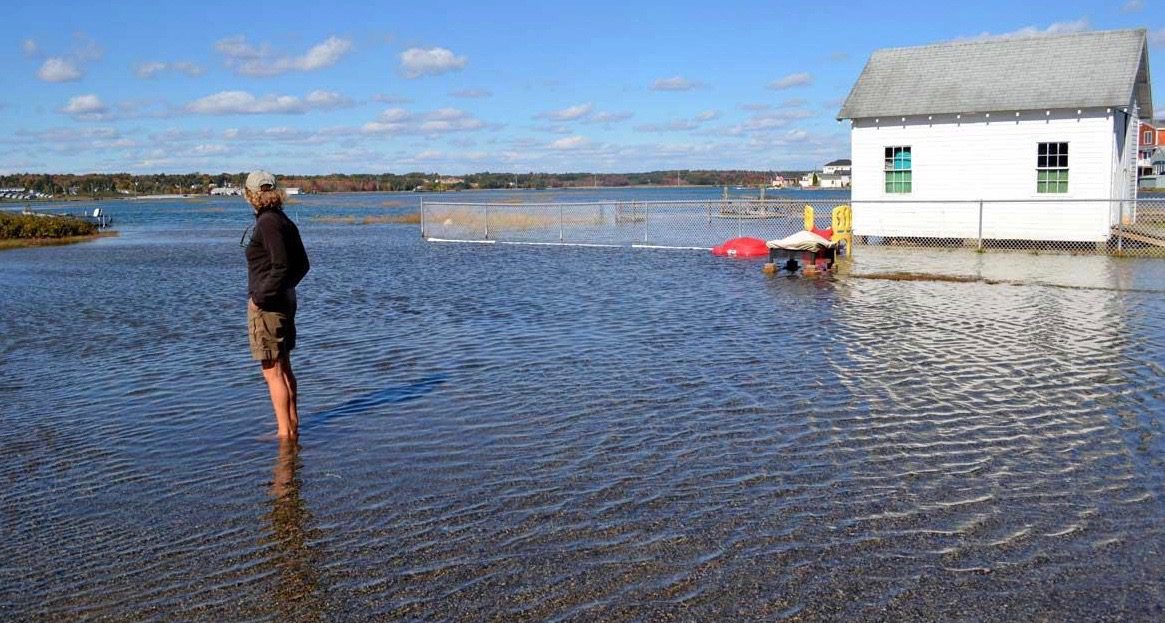The coronavirus tragedy in the U.S. holds a potent lesson about governance: Facing crises without a strategic plan costs lives.
The floundering on display in recent months – with conflicting federal guidance, states forced to compete for supplies and science distorted by political pressure – could intensify as the nation struggles with the more protracted and costly climate crisis.
The president, a master craftsman of chaos, applies the same improvisational techniques to both crises: dismiss them as hoaxes, ignore the scientific consensus and withdraw from international efforts to seek collective solutions. As damage mounts, blame others and repeatedly claim “nobody” could have predicted something like this.
Coronavirus and climate change won’t appear by name on fall ballots, but they headline the upcoming election. Yet only one of the two major presidential candidates – former Vice President Joe Biden – has put forward a plan for how the nation can slow and cope with global warming.
The current administration prefers to look backward, intent on 100 rollbacks of Obama-era rules and standards. The latest ones will open the Arctic National Wildlife Refuge to drilling and loosen controls on methane leaks from fracking operations, accelerating the release of a greenhouse gas 80 times more potent than carbon dioxide.
For Maine, the stark difference in federal stances on climate will have profound repercussions. With the state facing severe revenue shortfalls, strategies drafted by the Maine Climate Council’s six working groups – in preparation of a state Climate Action Plan – could be hard to implement if Maine is largely left to its own devices, as it was with COVID-19.
Federal support is “the vital missing piece,” said Rozanna Patane of York, who served on the Council’s buildings, infrastructure and housing working group. “There’s a great return on investment (with clean energy),” she adds, “but it still takes capital.”
Finding common ground
Despite an ambitious timeline and meetings forced online by the pandemic, the Maine Climate Council managed to incorporate diverse perspectives in drafting its strategies, with roughly 230 active participants.
“I don’t lavish praise on process lightly, and I have to say I was very impressed,” Patane said. Staff and co-chairs did “a lot of work behind the scenes” to record ideas, organize them and return them to the working group for refinement. Throughout the process, she noted, there was a consistent “effort to accommodate contrary points of view.”
A similar spirit of inclusiveness marked the development of Biden’s revised climate plan. His initial plan drew tepid responses, so following the Democratic primary, Biden’s team sought ideas from climate leaders and former rivals such as Sen. Elizabeth Warren (D-Mass.), Sen. Bernie Sanders (D-Vt.) and Gov. Jay Inslee (D-Wash.). Biden and Sanders even formed a “unity task force” on combating the climate crisis and pursuing environmental justice, co-chaired by former Secretary of State John Kerry and Rep. Alexandria Ocasio-Cortez (D-N.Y.).
One of the many people Biden consulted in recent months was Michele Roberts, national co-coordinator of the Environmental Justice Health Alliance. “Everybody knows that Joe Biden can do a whole bunch of talking,” she recently told the Washington Post. “But what he did do was that he also listened. We needed that. We needed someone to listen.”
What emerged from those conversations, noted Matt Schlobohm, executive director of the Maine AFL-CIO, is “the most pro-labor, pro-environmental justice plan ever to be put forward by a major-party presidential nominee.” Among its many commitments to greater equity, the plan promises to bring clean energy and infrastructure upgrades to disadvantaged communities (which would receive more than $500 billion in assistance).
The Biden plan fundamentally recognizes that climate change is a “deep ecological crisis, but also a crisis of inequity and injustice,” Schlobohm said. Having that federal-level acknowledgment of the nation’s need to promptly tackle a “major economic restructuring” is, in his words, “tremendously encouraging.”
That strong commitment to economic justice isn’t evident in the state’s draft climate strategies, Schlobohm said, “at least yet.” There’s ongoing work on that front, though, with a Clean Energy Economy Plan focused on good-paying jobs and workforce training in development, and many Council participants acknowledging “a need to focus on job creation and job quality.” The Mitchell Center for Sustainability Solutions at the University of Maine is completing an equity audit of the climate strategies due to the Council this fall.
A momentous choice ahead
Both the state and federal climate plans underscore that substantive policies and programs can do more than ward off ecological catastrophe; they can deliver significant economic gains and job opportunities. The Biden plan would direct funds and technical assistance toward many needs already identified by the Maine Climate Council: upgrades to the electric grid, accelerated use of electric vehicles (and further charging infrastructure), weatherization and efficiency upgrades to buildings, and sustainability investments in disadvantaged communities.

While falling market prices are helping drive adoption of renewable power and electric vehicles, the costs of climate adaptation are climbing. To stretch dwindling governmental dollars, states could employ creative financing mechanisms and seek federal grants. But the latter option will only work, Schlobohm said, if “federal government is reconstituted in a way that takes the COVID and climate crises seriously.”
Four more years of climate denial and deregulation, atop a raging pandemic, could push ecosystems and the economy past critical tipping points.
Former Maine state economist Charlie Colgan, who now directs research at the Center for the Blue Economy in Monterey, California, recently shared sobering thoughts on the incalculable cost of proceeding without a plan.
If we fail to get a federal administration that can advance and fund climate measures, he said, the “pandemic’s impact will damage or destroy our ability to address climate change. Just as we’ve given up on the virus, we’ll give up on climate change. But neither the virus nor climate change will give up on us.”







